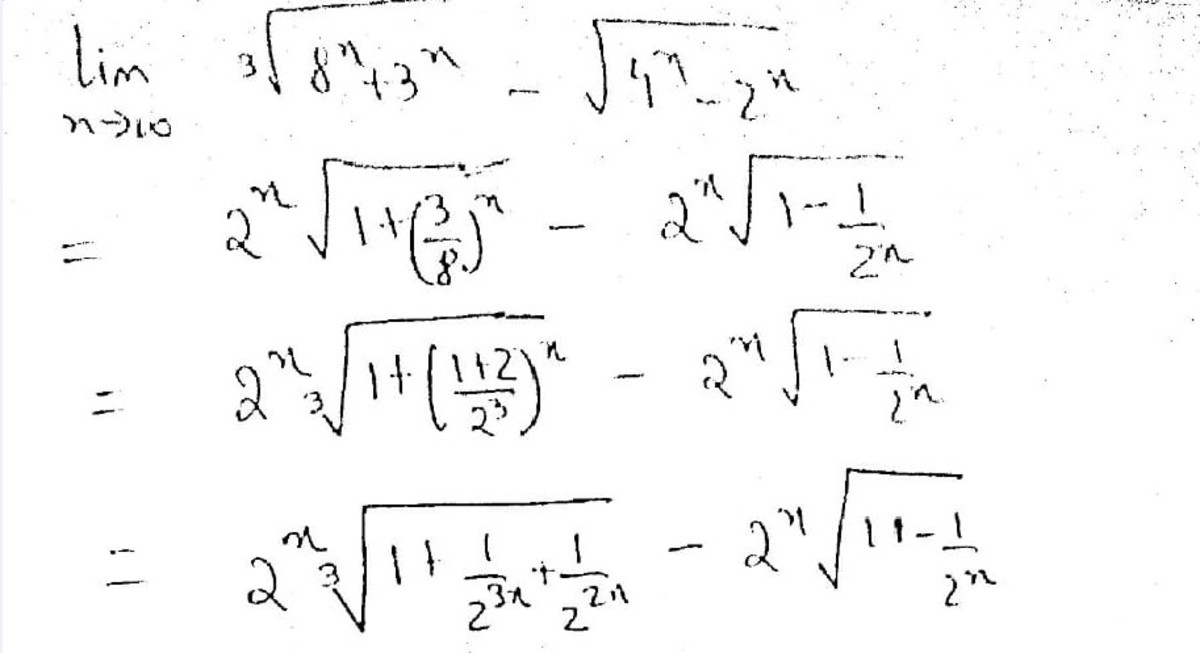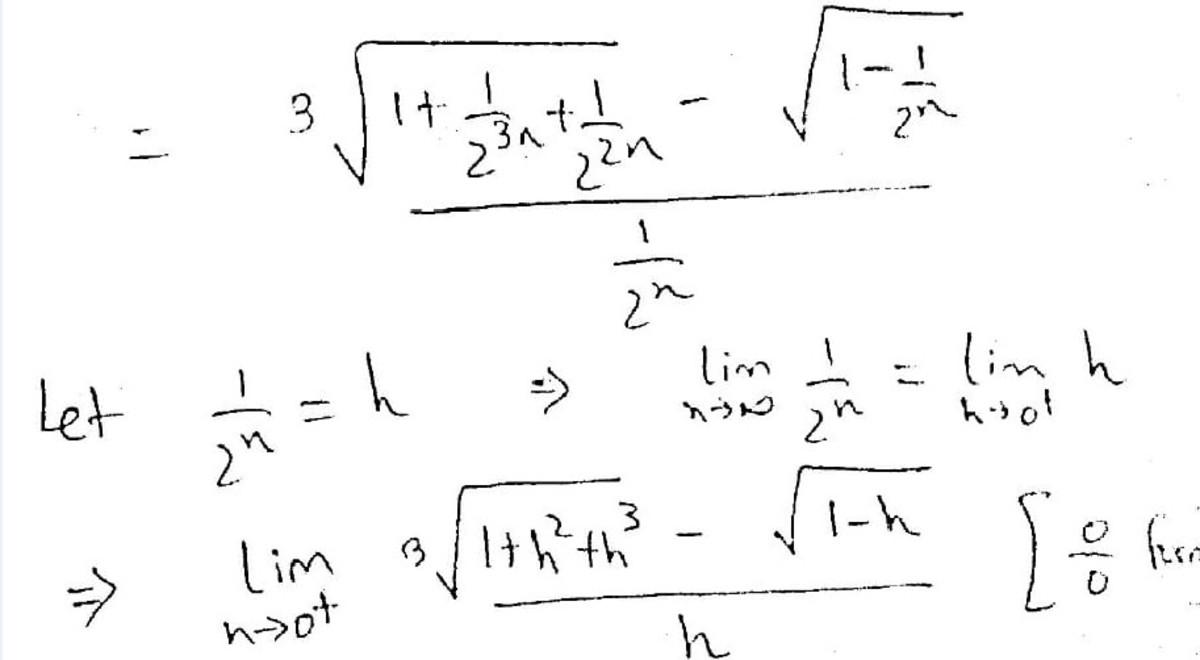This section requires Javascript.
You are seeing this because something didn't load right. We suggest you, (a) try
refreshing the page, (b) enabling javascript if it is disabled on your browser and,
finally, (c)
loading the
non-javascript version of this page
. We're sorry about the hassle.
3 solutions
Yes! Very clear explanation.
Log in to reply
Thanks for the comments. I will do my best.
Log in to reply
When I write solutions I never think of using different colors... I should learn from you.
What happened from line 2 to line 3? Is that a Taylor polynomial
Log in to reply
Yes, Taylor expansion. You may want to use this Taylor series calculator .
This problem is similar to Iikkyu San's problem. Waiting for Rishabh to post the answer.
Yes. I have just finished that problem. Maybe I'd better quote that as an inspiration.



L = x → ∞ lim ( 3 8 x + 3 x − 4 x − 2 2 ) = x → ∞ lim ( 2 x [ 1 + ( 8 3 ) x ] 3 1 − 2 x [ 1 − ( 4 2 ) x ] 2 1 ) By binomial expansion = x → ∞ lim ( 2 x [ 1 + 3 1 ( 8 3 ) x − 9 1 ( 8 3 ) 2 x + . . . ] − 2 x [ 1 − 2 1 ( 2 1 ) x − 8 1 ( 2 1 ) 2 x − . . . ] ) = x → ∞ lim ( [ 2 x + 2 2 x 3 x − 1 − 2 5 x 3 2 x − 2 + . . . ] − [ 2 x − 2 1 − 2 x + 3 1 − . . . ] ) 2 x − 2 x = 0 and all red terms → 0 as x → ∞ = 2 1 = 0 . 5